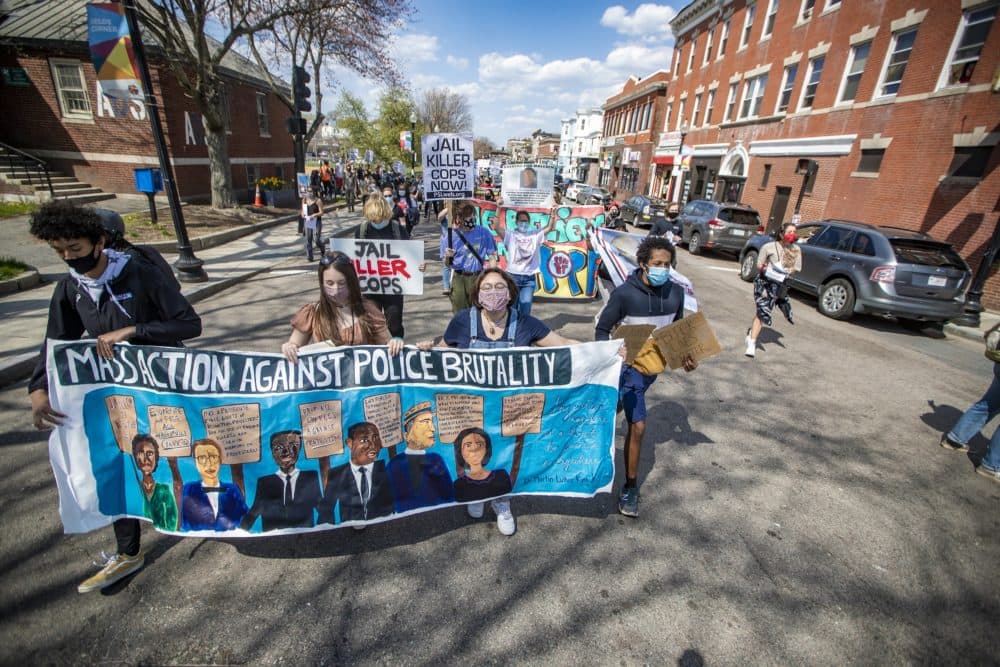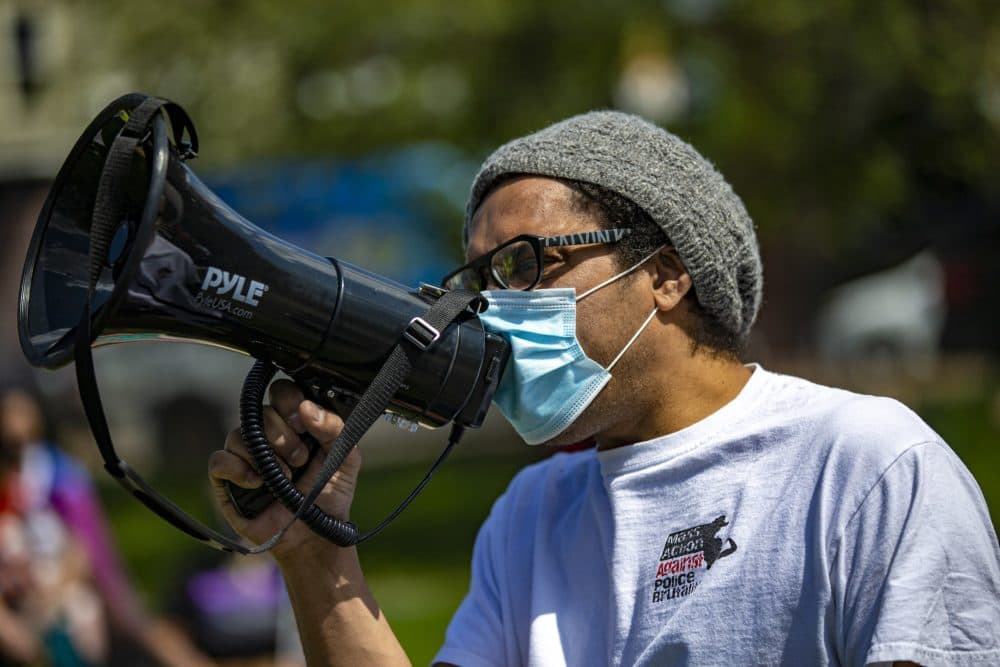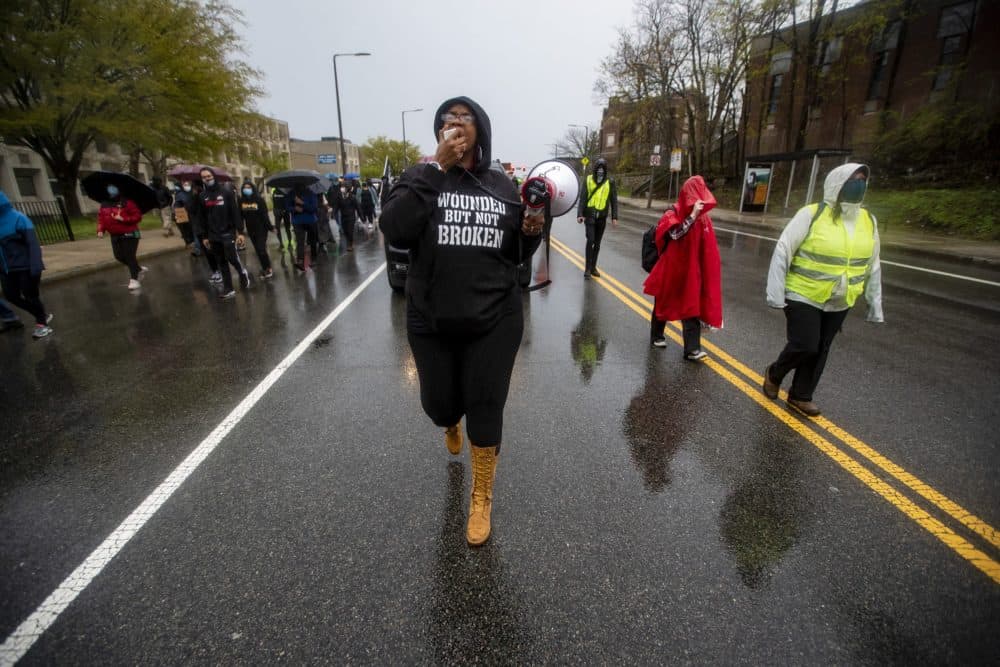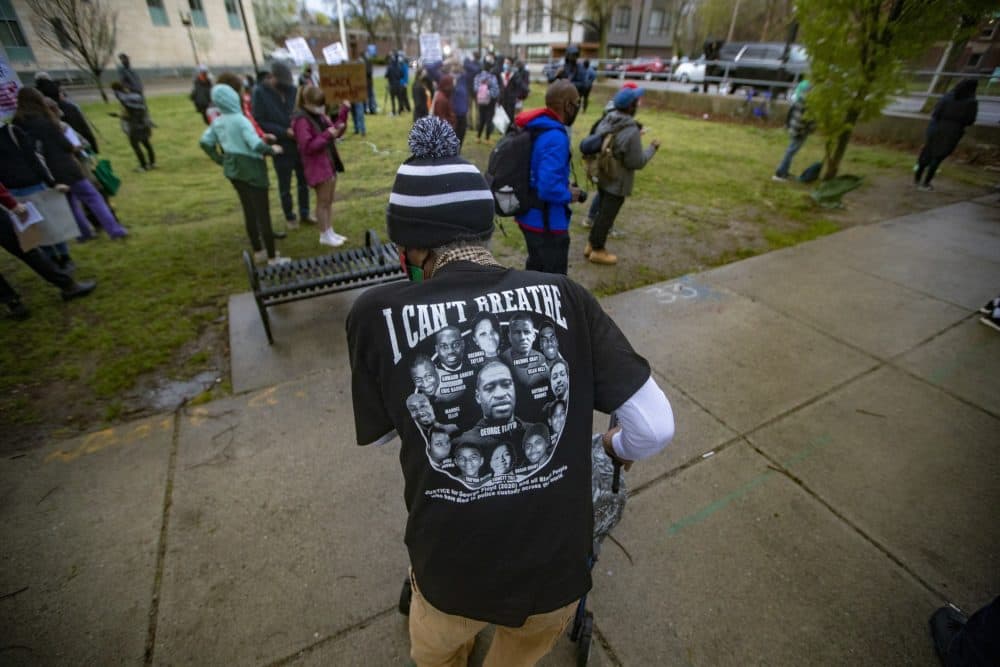Advertisement
'Until We Win': Boston Protesters Seek Bigger Changes To Policing

For seven years, Brock Satter has been leading the same chant at protests around Boston.
"What do we want? Justice! When do we want it? Now! If we don't get it. Shut it down! If we don't get it, shut it down!"
Satter is an organizer with Mass Action Against Police Brutality. The group’s goal is simple: investigate, prosecute and jail cops who kill people. Turning that goal into reality is more complicated.
"If George don't get it, shut it down! If Daunte don't get it, shut it down! If Terrence don't get it, shut it down! If Bo don't get it, shut it down!"
Over the years, more names have been added to the list of people who have died in violent encounters with police. And there's been little justice to be had.
There have been some recent wins. Like the guilty verdicts against Derek Chauvin, the former Minneapolis police officer convicted of killing George Floyd.
In the wake of Floyd's death last year, politicians around the country passed new laws and sought reforms of local police departments.
But people keep dying at the hands of police. And activists say there’s a lot more to be done.
Police killings have continued at a steady pace since Michael Brown’s death in Ferguson. Officers shoot and kill about a thousand people a year, a figure that has changed little in recent years.
But only about 1% of officers ever face charges. Satter wants what happened with Chauvin to become the norm, not the exception.
"We’re still out here saying justice for Mike Brown, justice for Tamir Rice," Satter said.

Some activists, though, want to do more than prosecute bad officers.
“We’re not going to reform racism. So reform is not coming out of my mouth. Get rid of the whole damn system," Monica Cannon-Grant told the crowd at a protest last month celebrating the verdict against Chauvin.
Cannon-Grant, a 40-year-old mother from Roxbury, has led some of the largest protests in Boston over the last few years. She wants to dismantle the current policing system and build something better.
"Abolish them," she said. "They're not helping us. They're killing us. There's no amount of reform to stop them from murdering us."
Cannon-Grant has found that what gets attention is protests: people flooding the streets and making noise.
"I think that people have underestimated mobilizing and protesting," she said. "Because it wasn't until we started protesting that the world began to pay attention."
Advertisement

The demonstrations since George Floyd’s death last year have undoubtedly made a difference. Gov. Charlie Baker signed a law that creates a new commission to certify police officers. Boston launched a new office with the power to investigate police misconduct.
And a number of cities, including Boston and Northampton, have tried to trim police budgets — with mixed results.
But change has largely been incremental. State lawmakers backed off an effort to make it easier to sue police officers. Cities haven’t slashed police department budgets as much as activists want.
University of Maryland professor Rashawn Ray, who studies policing, said reform has been piecemeal. Instead, he said there needs to be a transformation of how police officers do their jobs.
"Police reform in America has largely failed because we've been trying to piecemeal a problem that is so intricate, layered and complex," he said. "That we haven't made much headway."
"I think that people have underestimated mobilizing and protesting. Because it wasn't until we started protesting that the world began to pay attention."
Community Organizer Monica Cannon Grant
Like protesters, many police chiefs say they wish the changes could be made more quickly. Take the new state commission that will certify and de-certify officers. Lawrence police chief Roy Vasque said chiefs pushed for something like that for years, to make it easier to get rid of bad officers.
"We've disciplined people ... fired people in some instances, only to have civil service and the unions get them their jobs back," he said. "So I feel their frustration. Absolutely."
Vasque and other chiefs said the police reform activists and police leaders actually have more in common than they might realize.
"We are cognizant of the fact that there's some things that have gone on that have upset people across the country," he said. "We are upset by them as well."

Change has been slower than activists want. But the last year has shown that police leaders and lawmakers pay attention. And that’s encouraged protesters like Satter to continue, as he told the crowd at a recent demonstration.
"There’s a saying that we have: how long are we going to keep these protests going on?" he asked.
" 'Til we win!" the crowd replied
Until then, activists plan to keep showing up in the streets.
This segment aired on May 4, 2021.
